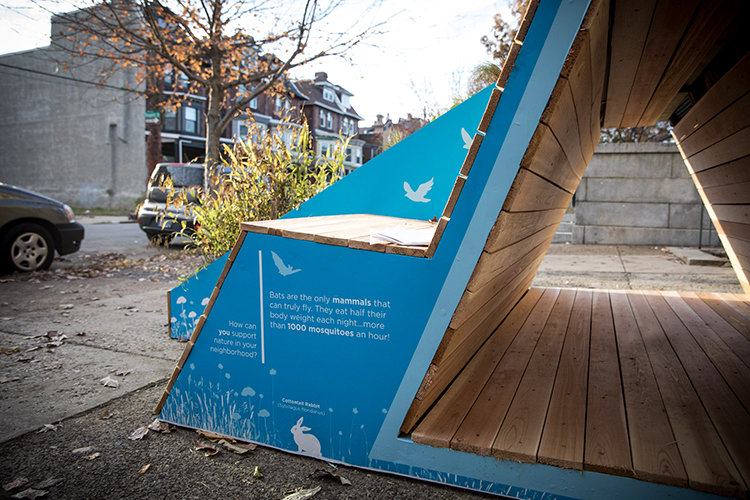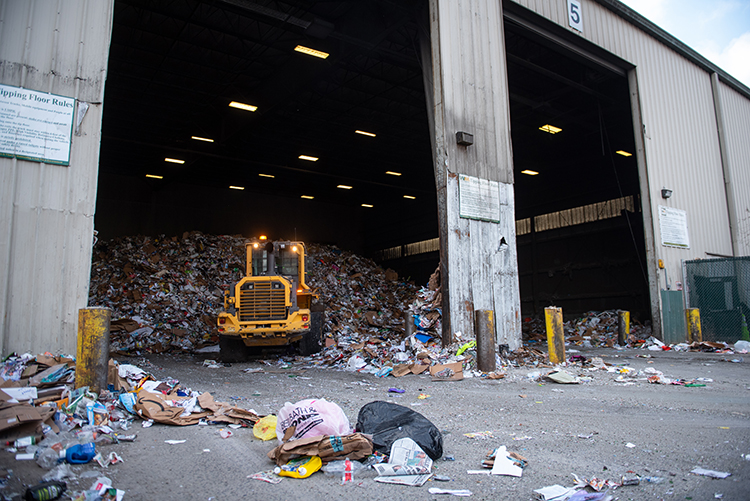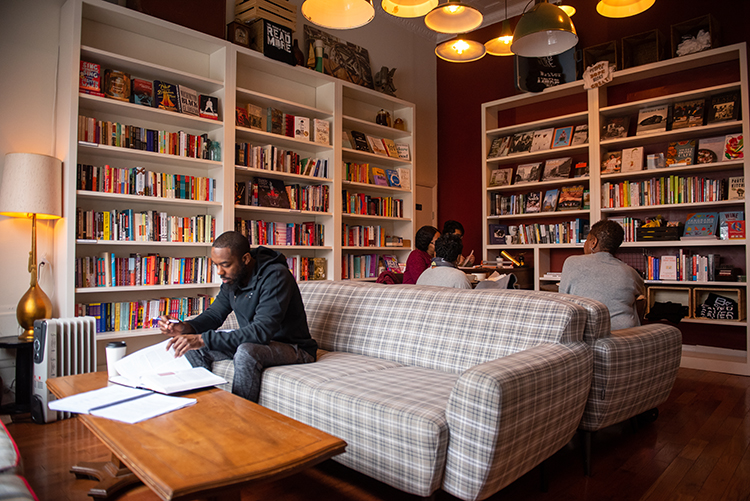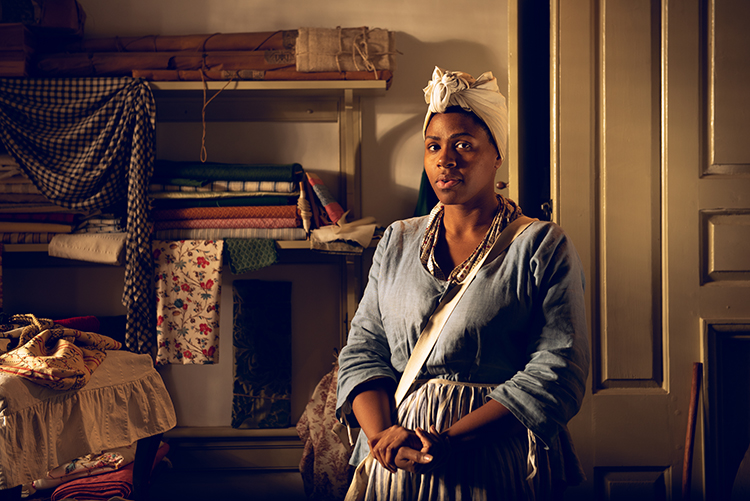The Free Library adds nature strolls and challenging play terrains to cultivate young learners
by Bernard Brown
Approximately 16 parents and children gather on a June morning for a stroll to the shore. That might conjure images of a summer day at the beach, but in this case, the closest thing to the crashing of waves is traffic rolling by on 49th Street, and the shore is the lower Schuylkill River in Southwest Philadelphia. This is a Saturday Stroll, a nature walk organized by nonprofit play advocate and design organization Studio Ludo in conjunction with the Free Library of Philadelphia, Interpret Green, Roofmeadow and Bartram’s Garden.
Meghan Talarowski, Studio Ludo’s founder and director, gives a quick introduction to the walk, first showing off the mesh-sided bug enclosures participants can use to take a closer look at any critters they find, and then cards with images and facts about bugs, reptiles and amphibians they might see on the walk. With that, the group sets off down the sidewalk.
They only make it a few feet before stopping to explore the community garden next to the library. There they discover some brown snakes–small, harmless snakes common in Philadelphia’s green spaces–as well as an assortment of bugs, such as cabbage white butterflies. Nature walks with small children move slowly, but even more so when every discarded piece of trash can hide wonders, and every vacant lot holds more critters (centipedes, isopod-killing spiders, ants). Eventually the group arrives at Bartram’s Garden. With a meadow to one side and the waterfront on the other, they check out a garter snake and conclude the stroll by filling out evaluation forms.
“[It] was lovely to be with community and notice the things in the natural world around us,” says Molly McGlone, who brought her children on the walk.
Studio Ludo led three more Saturday Strolls over the spring and summer, exploring natural history, including rocks and birds, and the final walk featured a neighborhood history scavenger hunt, according to Talarowski.
Soon library patrons at the Kingsessing and Cecil B. Moore branches in North Philly will be able to take their own nature strolls any day of the week. Studio Ludo and the Free Library are developing “adventure packs,” according to Talarowski, “[T]hat children and families can check out of the library, which will encourage people to go out and discover the ecology and nature that’s in their neighborhood.” The adventure packs build on the Free Library’s experience with BirdPhilly birding backpacks, which were deployed at three branches (Andorra, Cecil B. Moore, and Widener) and contain a map, field guide, and binoculars. The Saturday Strolls this summer were “a way for us to get feedback from the people about what they’d like to see in those [adventure] packs,” she adds.
The Cecil B. Moore branch will launch its own Saturday Stroll series in the spring of 2019. The Free Library system had installed indoor “Play-and-Learn” spaces at three libraries earlier in the year, and the outdoor play terrains are extending the concept into environmental education, according to Joel Nichols, Data Strategy and Evaluation Administrator for the Free Library. Both library branches sit on divides between watersheds: Cecil B. Moore between the Delaware and the Schuylkill, and Kingsessing between the Schuylkill and Cobbs Creek.
“We thought of these as the front porch of the library,” says Nichols. “And so we saw this opportunity specifically around highlighting watershed education and nature education.”
The strolls and adventure packs tie into “play terrains” built in front of both branches. The terrains consist of large triangular structures with steps to climb on the outside and nooks encouraging kids to climb in. On the sides, printed watershed facts as well as open ended questions such as, “How can you support nature in your neighborhood?” spark conversations. Plantings run up and down the centers.
Extensive community engagement and research contributed to the development of the play terrains, with several hundred people taking part in the meetings, play parties and canvassing at the two libraries, according to Nichols and Talarowski. The research and evaluation will continue as the Free Library studies how children and caregivers interact with the play terrains.
On a wet afternoon in November, a father, Jesse, and his son are playing on the recently completed play terrain in front of the Kingsessing branch.
“My first thought was, ‘Wow, wouldn’t this be cool for my son to climb around on?’” says Jesse, who had read about Perch Creek, which, before it was directed into an underground pipe, ran where the library now stands. “[We are] looking forward to reading the rest of it.”









